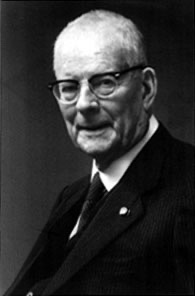 This post is a follow up Io Intersections- Dr. Deming. If you have not read that post, I encourage you to read it so you will understand the context of this post.
This post is a follow up Io Intersections- Dr. Deming. If you have not read that post, I encourage you to read it so you will understand the context of this post.
I regard the influence of Deming’s thinking to be transformative for my life. In this post, I want to begin to give some substance to the transformations I experienced.
I encountered Deming in the context of Ford Motor Company, particularly the Kentucky Truck Plant. The focus was on improvement of product quality and organizational changes necessary to achieve quality goals. I remember my initial perception being that we were embarking on another program to do quality better. Essentially, work harder at what we had been doing.
Upon being introduced to Deming, my fundamental belief, and the belief of Ford management, that improvement is achieved through working harder, was challenged and proved false.
At some point, I began to realize that what Deming was asserting was not just about Ford and industry in general, but applied universally to all human organizations. For me, family and church were the first to come to mind.
Working harder as a solution, to most, if not all problems , was the default position for myself and for most people I knew. To have that option, questioned, much less eliminated, was traumatic, to say the least. My intuitive rebuttal was to interpret Deming to be saying that hard work is a negative. That was not the case, he dealred hard work is good and necessary, just not the solution to systemic problems.
This was transformative personally. The belief that solutions to systemic problems is working harder, or, do better, implies that the sole responsibility for the problem falls on the indiviual, employee, wife, child, church member, or others within the organization. Under such an assumption, the role of leadership is largely confined to discerning how to get followers to work harder and do better.
A work harder assumption regarding solutions to systemic problems is deeply related to one’s belief regarding the nature of human beings. That revelation was an occasion for much reflection, self-assessment and repentance.
Although my understandings, with regard to work harder as a solution, were transformed; I continue to struggle with the temptation take the path of least resistance and, ironically, avoid the hard work of solving systemic problems.
A continued prelevance of the “work harder” mentality is demonstrated broadly in our culture. From political podiums, pulpits, corporate offices and academia, it underlies and feeds the divisions that threaten our future and and is a barrier to much desired resolution.
My next post is, Deming – Systems Thinking